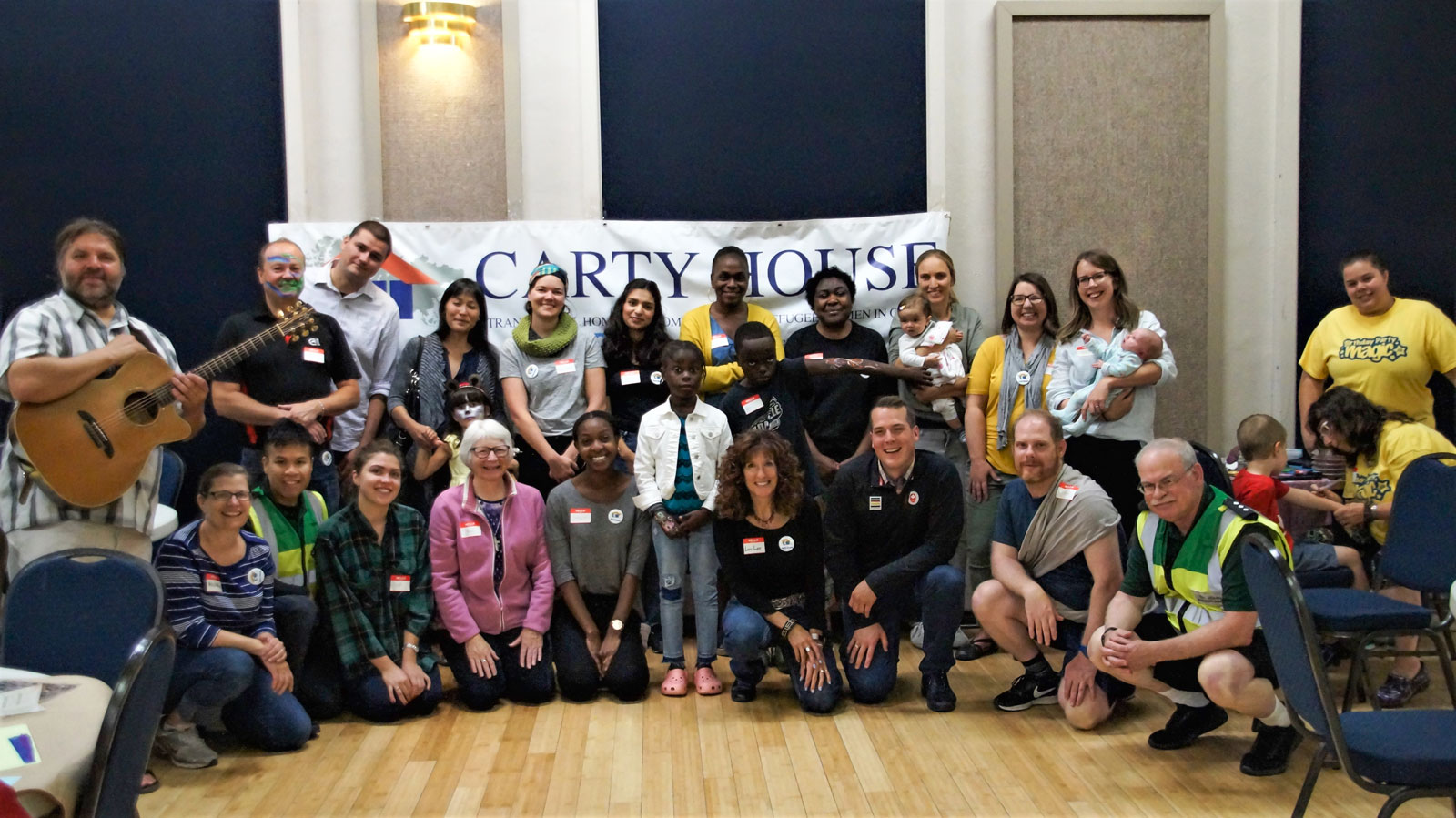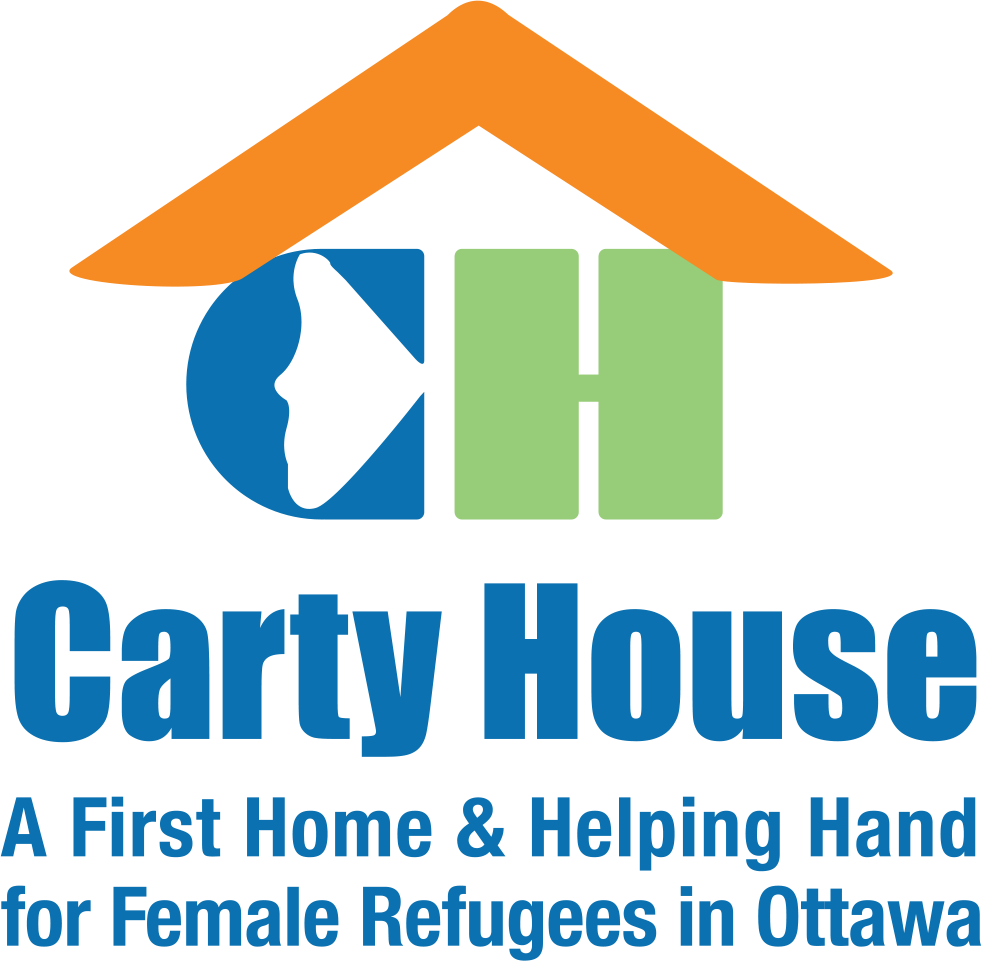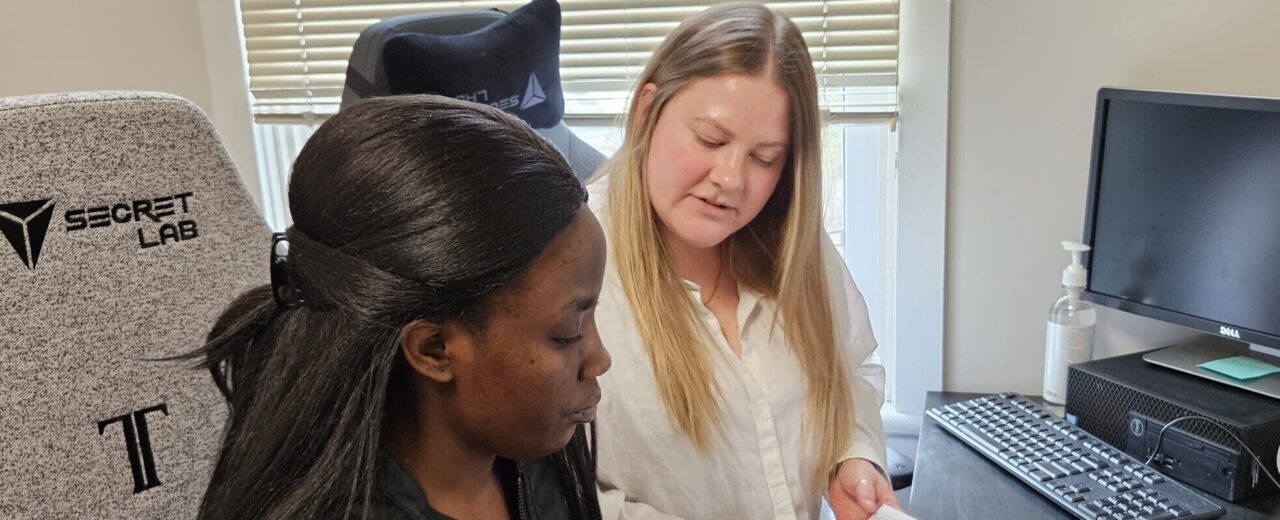 Refugee Women Starting Over, One Step at A Time
Refugee Women Starting Over, One Step at A Time
Refugee Women in Ottawa
Think of a woman that you care about. Imagine if she was not safe and had to leave, right now, and flee to another country. Where would you want her to live? How would you want her to be supported as she rebuilds her life? Refugee women who are alone in the Nation's Capital are often invisible. They may literally get off a plane or bus and have no idea where they will spend the night, much less, the rest of their lives. Having left everything behind - family, friends, work, everything! - they have landed in what they hope will be their new safe home country. Now what? Our emergency shelters serve an important purpose, yet they can be unsafe for women, especially refugee women who are alone. You would want the woman that you care about to find safety in a place like Carty House - it's not just a house, but a home.
Necessity
Health education for refugee women in Ottawa.
Activity
Educating refugee women on the importance of women's health and the supports available to them in Ottawa.
Countable effort
Every Good Deed will provide a refugee woman with 1 minute of women's health education.
Result
Female refugees will understand the importance of women's health and where to access applicable services and supports.
Systemic effect
Women who understand the importance of good health and the supports that are available to them are better prepared to rebuild their lives in Canada.
Background
Women are forced to flee their home countries because of armed conflicts or war, gender-based violence, forced marriage, domestic abuse, persecution and discrimination, economic hardship, and/or environmental displacement. They have left everything that is familiar and must start over again, in a foreign country. They are extremely vulnerable. According to the United Nations High Commissioner for Refugees (UNHCR), in 2023, 36.4 million refugees were forced to flee their homes and communities because of conflict, human rights violations or persecution - about half of whom were women and girls. Canada has a strong tradition of welcoming refugees. Canada has welcomed 1,088,015 refugees since 1980. (UNHCR website). Welcoming refugees is only the first step. They must also be supported and educated along their road to resettlement. Refugees and refugee claimants face a number of barriers once they arrive in Ottawa, including language barriers, health and wellness issues, and accessing trauma supports. For refugee women who are alone, there are also unique gender barriers and challenges and risks of isolation in the resettlement process. Female refugees must be supported in a particular way and this includes educating them about Canadian health supports that are afforded them.
The good deed
Most of us probably take for granted the basics of health care: where to go for medical assistance, supports available for mental health, the importance of regular teeth cleaning and eye care, as well as proper nutrition and exercise. If we are women, we also know about specific supports such as gynaecological and reproductive health, as well as personal safety. However, if you are a female refugee, you probably dont' know of these supports, and you certainly would not know how to navigate the needed systems in Canada. Carty House ensures that each new resident is provided these basic foundations in women's health supports. This usually starts with a field trip we call "Lady Parts Day" that includes a fitting/purchase of a good bra, a trip to the drugstore to purchase necessary personal items, and some important conversations. From there, we build on this foundation, educating each woman on the supports available in Canada, and more specifically, in Ontario.

About Canada
Ottawa
Canada welcomes a significant number of refugees, as a global leader in resettlement. Of the total admissions of new residents, a notable portion are female. Canada's refugee programs, indicate a strong focus on supporting those displaced by crises. Women and children often represent a significant portion of refugee populations.
Refugees contribute to Canada's GDP by filling labor shortages, starting businesses, and boosting demand for goods and services, thus supporting long-term economic growth. Their skills and entrepreneurship also foster innovation and enhance productivity in various industries.
By contributing to economic growth, accessing social services, and improving long-term health and education outcomes, refugees can help raise the overall HDI of the country.
Almost all of Ontario's 2,700 km (1,700 mi) border with the United States follows inland waterways, with only about 1 km (5/8 mi) of actual land border at the Height of Land Portage on the Minnesota border.
About the organization and further information

Carty House
Website
Further information and source
- • United Nations Refugee Agency - Refugees in Canada.
- • Canadian Council for Refugees - Key Issues Affecting Newcomer Women and Girls.
- • OCASI: State of Immigrant and Refugee Women in Canada.
- • UNHCR Rights and Duties for Refugees and Asylum Seekers.
- • UNHCR: THE WORLD’S BIGGEST MINORITY? Refugee Women and Girls in the Global Compact on Refugees.




